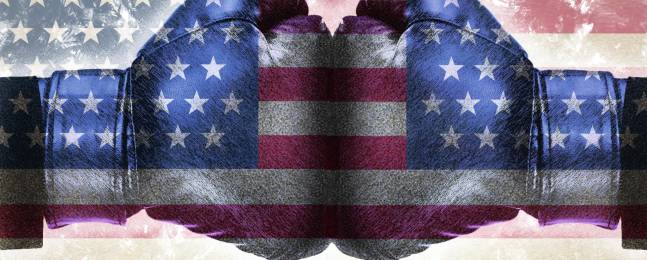
The Trump–Clinton race has been mired in personal attacks and insults. Voters and international onlookers are wondering how much political decorum is demanded by a country that serves as an example for the rest of the world.
As George Washington, the first president of the United States, used to say, “Example, whether it be good or bad, has a powerful influence.” Today, 200 years later, the candidates running to occupy the White House—Donald Trump and Hillary Clinton—seem to have strayed away from the Founding Fathers’ guidebook of lessons in a country whose strong political and military record has historically served as an obligatory reference point for the international community.
Both are facing off in a campaign that seems more geared toward discrediting opponents than maintaining political decorum, something demanded by the principles and programs of a country that is now facing numerous challenges and enigmas on a domestic and global level, ranging from the massive surge in immigration to both the United States and Europe, to the terrorist threat posed by the Islamic State group, which is gripping the West and all corners of the Middle East.
Tape recordings in which Donald Trump brags about using his position of power and fame to turn women into the objects of his lewdness and accusations by Hillary Clinton that half of Trump’s followers fit inside a “basket of deplorables” not only fail to respond to voters’ urgent questions about the country and the future of the union, but they also disappoint everyone due to their short, reactive impertinence.
Trump’s repeated and abundant excesses are leading him to lose ever more support among even Republican leadership and campaign financiers, who yesterday demanded he return their donations. Meanwhile, the flood of criticisms has not ceased for Clinton over revelations surrounding her use of a personal email in handling national security and highly sensitive state issues.
The latest polls taken among those intending to vote show Clinton leading with 49 percent compared to the 38 percent in favor of her controversial businessman opponent. The greatest shift in voter preferences has occurred among “independent” voters. But what these polls fail to measure is the growing degree of disenchantment among onlookers disconcerted by the fruitless tone of politics in which bitter insults employed to gain popular appeal seem to be the name of the game.
Under these circumstances, it’s not only the candidates whose prestige takes a hit but the campaign itself, and, along with it, the reputation of United States politics, which finds itself momentarily without leaders or innovative, proactive leadership. Nor is [the U.S. political system] capable of responding to the country’s current challenges, whether they be domestic or foreign in nature.
Pundits and the press have pushed forward the premise that citizens choose the “lesser of two evils,” something that lays bare the mediocrity of current affairs. It’s a premise that not only ignores its defects (the absence of proposals), but also its excesses (the mutual and tasteless use of intimidation and the candidates’ personal flaws).
It’s quite optimistic to think that, 26 days from Election Day on Nov. 8, such a political climate will be able to qualify as being at the level of statesmanship that a country with such power and responsibility in the world demands. But it’s doubtless that such an outcome would be fortunate not only for the “America of the Americans,” but also for those who are part of Washington’s political orbit that are onlookers of the decisions it makes.
Over the course of these upcoming four weeks, the repercussions and magnitude of what Trump and Clinton do and say will demonstrate how not only the American people, but also the global community is affected by either the good or bad example they set.

Leave a Reply
You must be logged in to post a comment.